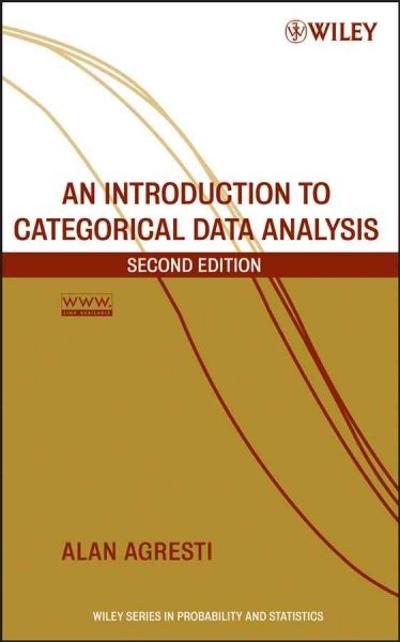For the horseshoe crab data (Table 3.2, available at www.stat.ufl.edu/aa/ intro-cda/appendix.html), fit the logistic regression model for
Question:
For the horseshoe crab data (Table 3.2, available at www.stat.ufl.edu/∼aa/
intro-cda/appendix.html), fit the logistic regression model for π = probability of a satellite, using weight as the predictor.
a. Report the ML prediction equation.
b. Find ˆπ at the weight values 1.20, 2.44, and 5.20 kg, which are the sample minimum, mean, and maximum.
c. Find the weight at which ˆπ = 0.50.
d. At the weight value found in (c), give a linear approximation for the estimated effect of (i) a 1 kg increase in weight. This represents a relatively large increase, so convert this to the effect of (ii) a 0.10 kg increase, and
(iii) a standard deviation increase in weight (0.58 kg).
e. Construct a 95% confidence interval to describe the effect of weight on the odds of a satellite. Interpret.
f. Conduct theWald or likelihood-ratio test of the hypothesis that weight has no effect. Report the P-value, and interpret.
Step by Step Answer:







